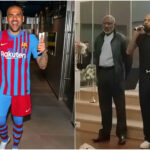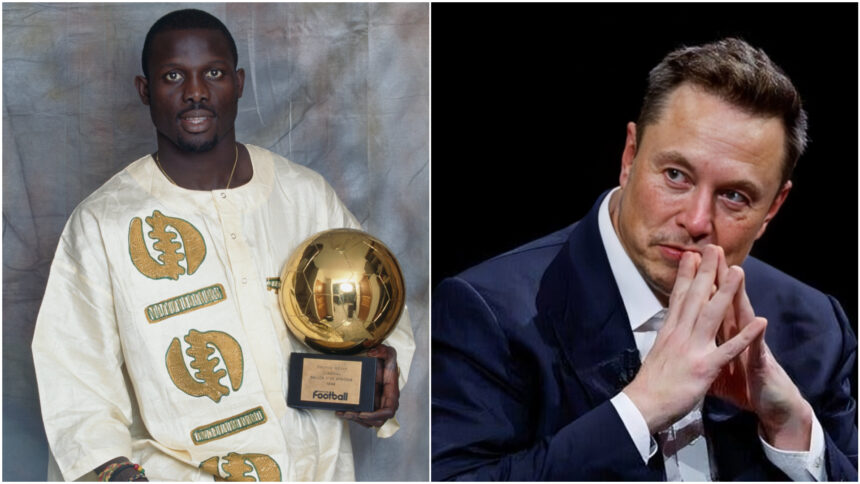In February 2025, Liberian football legend George Weah firmly dismissed viral social media rumours suggesting that tech billionaire Elon Musk had attempted to buy his historic 1995 Ballon d’Or trophy.
The former AC Milan striker — still the only African to ever win football’s most prestigious individual honour — stressed that the Golden Ball would forever remain in his family’s possession.
“Even a billion-dollar offer would not tempt me,” Weah said, as cited by All Africa. “This Ballon d’Or was earned through hard work, and it must be preserved for future generations.”
Weah also clarified that Musk never made such a bid and reiterated that the award, symbolic of his career-defining achievement, was simply not for sale under any circumstances.
Who is George Weah, and what’s his football legacy?
Nearly three decades on from lifting the Ballon d’Or, Weah’s unwavering stance underscores the trophy’s priceless meaning. For him, it is not only a personal triumph but also a milestone for Liberia, Africa, and his family’s legacy.
Though often spotted these days at Bawaleshie Park in Accra, Ghana, where he occasionally joins casual games, Weah’s name continues to echo across the football world as the man who opened doors for African players at the very top level.
Weah’s road to greatness began in Monrovia, Liberia, where his talent first caught the eye of European scouts. Under the guidance of Arsène Wenger at AS Monaco, he announced himself by winning the French Cup in 1991.
His move to Paris Saint-Germain elevated him further. In 1994, he not only won the Ligue 1 title but also finished as the league’s top scorer, cementing his reputation as one of the world’s most dangerous forwards.
The striker’s peak arrived at AC Milan, where he became a Serie A icon. Weah helped the Rossoneri to league titles in 1996 and 1999, dazzling fans with a blend of power, speed, and skill. His breathtaking solo goal against Verona in 1996 — running the entire length of the pitch before scoring — remains etched in Serie A folklore.
Later in his career, Weah added to his silverware with Chelsea, winning the 1999 FA Cup, before enjoying short spells at Manchester City and Marseille.
On the international stage, his dominance was just as clear. Weah was named CAF African Footballer of the Year three times, crowned FIFA World Player of the Year in 1995, and in 1999 was honoured as African Player of the Century.






